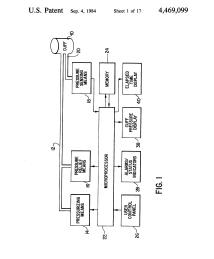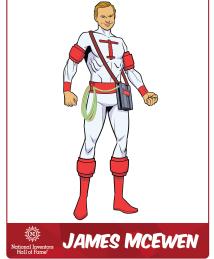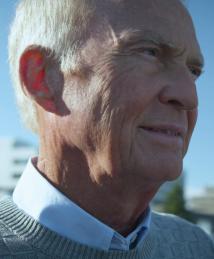James McEwen
"One of the things that's important, and it's often overlooked in engineering, is the idea of being creative, of not just waiting to have somebody else tell you, 'Well, there's a problem,' but looking around every day and trying to see where there might be opportunities to do things better, to do things differently, and to use whatever talents and skills you have to accomplish that."
Biomedical engineer James McEwen invented the first microprocessor-controlled automatic surgical tourniquet system. Devices based on his innovations are used worldwide in nearly 20,000 surgeries each day.
Born in Winnipeg, Manitoba, Canada, in 1948, McEwen learned the value of resilience, hard work and education from a young age. His parents had both grown up on farms and faced hardships during the Great Depression, and while neither had the opportunity to finish high school, they found work with a Winnipeg aircraft company. When McEwen was 6, after his family moved from Winnipeg to Vancouver, his father, a sheet metal mechanic, was diagnosed with polio and spent nearly a year in an iron lung. McEwen’s entire family was quarantined for several weeks, causing a delay in his schooling. Despite this, he succeeded with the support of his teachers.
Witnessing his father’s recovery from polio made a lasting impression on McEwen. “It helped me understand the impact medical devices could have on a person’s life. So, it was very positive in that regard, seeing an iron lung help a person survive a critical phase of a disease, seeing an array of medical devices being used. That had a big impact at that age.”
As McEwen’s father recovered, he took an interest in electronics and began to share this hobby with his son. McEwen credits his father with not only introducing him to electronics, but also showing him how to overcome challenges and respond with innovation.
At the University of British Columbia, McEwen earned his bachelor’s degree in electrical engineering in 1971 and a doctorate in electrical/biomedical engineering in 1975. After completing doctoral research at Vancouver General Hospital, he established its biomedical engineering department. There, he investigated situations where patients suffered limb paralysis, nerve damage and other injuries due to surgical tourniquet use. At this time, in the mid-1970s, mechanical pneumatic tourniquets were standard. McEwen’s research revealed problems with these tourniquets, including an unreliable pressure-regulating mechanism and no fail-safe feature to limit maximum cuff pressure.
The design process for a new tourniquet began with McEwen’s idea of using a computer to control the applied pressure. By 1980, he had developed a microprocessor-controlled system that was safer and more efficient than previous technology. An automatic timer provided an accurate record of inflation time, and if dangerously high or low cuff pressures were present, audiovisual alarms would activate. Safety features included automatic detection of air leakage, system integrity checks and a backup power source.
Today, almost all modern tourniquet systems used in western countries are based on the work of McEwen and his colleagues, including the A.T.S. series of automated surgical tourniquet systems from Zimmer Biomet. In an interview with the National Inventors Hall of Fame®, McEwen shared the question that motivates his work: “How can I use what I have, whether it’s resources, talents or abilities, to help improve the lives of others?”
Named on more than 80 U.S. patents and many other international patents, McEwen received the Principal Award for Innovation from Canada’s Ernest C. Manning Awards Foundation in 1997. He founded Delfi Medical Innovations to produce specialty tourniquets for applications including injury rehabilitation, emergency situations and military settings, and he continues to research tourniquet technology.
Inspired by his own experiences facing challenges in school, McEwen established scholarships for students in public schools including his own alma mater, David Thompson Secondary School in Vancouver.
Discussing his ongoing commitment to supporting the next generation of innovators, McEwen said, “If you help people, they’re going to do some amazing, wonderful things to improve the lives of others.”



